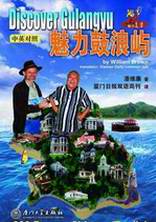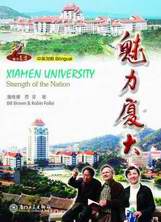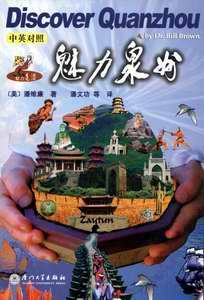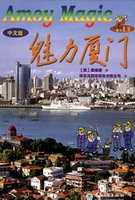![]() Click
to
Access
Click
to
Access
OUTSIDE China
![]() Click
to Access
Click
to Access
INSIDE
China ![]()
TRAVEL LINKS
![]() Xiamen
Xiamen
![]() Gulangyu
Gulangyu
![]() Jimei
Jimei
![]() Tong'an
Tong'an
![]() Jinmen
Jinmen
![]() Zhangzhou
Zhangzhou
![]() Quanzhou
Quanzhou
![]() Wuyi
Wuyi
![]() #1Fujian
Sites!
#1Fujian
Sites!
![]() Fujian
Foto Album
Fujian
Foto Album
![]() Books
on Fujian
Books
on Fujian
![]() Readers'Letters
Readers'Letters
![]() Ningde
Ningde
![]() Zhouning
Zhouning
![]() Longyan
Longyan
![]() Sanming
Sanming
![]() Putian
Putian
![]() Bridges
Bridges
![]() Travel
Info,
Travel
Info,
![]() Hakka
Roundhouses
Hakka
Roundhouses
![]() Travel
Agents
Travel
Agents
MISC. LINKS
![]() Amoy
People!
Amoy
People! ![]()
![]() Darwin
Driving
Darwin
Driving ![]()
![]() Amoy
Tigers
Amoy
Tigers
![]() Chinese
Inventions
Chinese
Inventions
![]() Tibet
in 80 Days!
Tibet
in 80 Days!![]()
![]() Dethroned!
Dethroned!
![]()
![]() Misc.Writings
Misc.Writings
![]() Latest
News
Latest
News
![]() Lord
of Opium
Lord
of Opium
![]() Back
to Main Page
Back
to Main Page
![]()
![]()


![]()
![]()
![]()


![]()

![]()
![]()


![]()
![]()
![]()

 & Dr. Bill
& Dr. Bill ![]() Order
Books
Order
Books![]() Xiamenguide
Forum
Xiamenguide
Forum 
Main
Page
Business
Links
E-mail
Ms. Yang Ying (杨英女士)
Baomu to Real Estate Magnate ![]()
Return to ![]() Xiamen
Success Stories
Xiamen
Success Stories
![]() More
Xiamen Success Stories
More
Xiamen Success Stories
![]() Miss
Yang Ying
Miss
Yang Ying ![]() Firefly
Lighting
Firefly
Lighting ![]() Huaxiangyuan
Tea
Huaxiangyuan
Tea
![]() Master
Translation Services
Master
Translation Services ![]() Meixia
Company
Meixia
Company ![]() B.B.
Mercy Foods
B.B.
Mercy Foods
![]() Fuzhou
Hotels
Fuzhou
Hotels ![]() Xiamen
Hotels
Xiamen
Hotels ![]() Quanzhou
Hotels
Quanzhou
Hotels
investments
ever was the 30 Yuan loaned to 19-year-old Yang Ying’s mother in 1982
so the teen could buy clothes and a bus ticket to seek her fortune in
Xiamen, which only two years before had become one of China’s first five
Special Economic Zones. Her goal was to earn 20 Yuan a month, 10 of which
she’d send home for her brothers’ education, but Xiamen was still poor,
opportunities were few, and she had only a 4th grade education, so she
started out as a teacher’s maid at 22 Yuan a month. And today, she has
repaid that 30 Yuan loan a million times over, enriching her family, her
hometown, and China.
Today, this former
baomu is the esteemed founder of Yingcai School and Xiamen International
School, Amoytop Biotech, and numerous real estate firms in Xiamen and
Beijing (where she is now starting a third private school). And in gratitude
for the 30  Yuan
loan that started her out, Yang Ying gives 150 Yuan a month to each of
the 400+ senior citizens (age 60 or older) in her home village. She has
also donated over 60 million Yuan to charity, and has earmarked 300 million
Yuan to open one thousand schools for Project Hope. “But my biggest dream,”
she said, “is to open a bone marrow bank to help Chinese children with
leukemia.” China’s incidence of leukemia is 3 to 4 per 100,000, half of
whom are children. Ms. Yang said, “Too many children die needlessly. Only
20% are treated, but if the bone marrow were available 90% could be cured.”
The project could cost hundreds of millions of Yuan, but Yang is confident
that if she starts the ball rolling, government and business will kick
in.
Yuan
loan that started her out, Yang Ying gives 150 Yuan a month to each of
the 400+ senior citizens (age 60 or older) in her home village. She has
also donated over 60 million Yuan to charity, and has earmarked 300 million
Yuan to open one thousand schools for Project Hope. “But my biggest dream,”
she said, “is to open a bone marrow bank to help Chinese children with
leukemia.” China’s incidence of leukemia is 3 to 4 per 100,000, half of
whom are children. Ms. Yang said, “Too many children die needlessly. Only
20% are treated, but if the bone marrow were available 90% could be cured.”
The project could cost hundreds of millions of Yuan, but Yang is confident
that if she starts the ball rolling, government and business will kick
in.
Selfish with Self, Selfless with Others Mr. Deng of the Xiamen Education Commission, Vice Headmaster David Wei of XIS, and Robin Feifei (co-author of our XMU book), accompanied me to Ms. Yang’s home for our interview. I first met Ms. Yang over a decade ago, when XIS was getting started, but I was still somewhat intimidated at interviewing her. But her easygoing manner and sense of humor put us at ease. Her attire, as always, was casual but neat. She smiled and said, “Since you were coming I dressed up a bit. I even put on a bit of make up!”
David Wei pointed out that she was still wearing the same 20 Yuan shoes she’d had for years, and she said, “Well, as Buddhism and Christianity both teach, ‘selfish to self, generous to others!’ I don’t waste money like some wealthy people. I only spent about 1000 Yuan a month on myself, and when I eat out I bring home a doggy bag.” I could understand the doggy bag, of course, because Ms. Yang has known her share of hunger.
From Fields to Fortunes The oldest of five children, Yang Ying was born in 1963 in Gaoshi Village, Shan’ge Town, Pinghe County (Lin Yutang’s hometown) to a family of farmers. Her mother could not speak Mandarin, but only the local dialect. Both parents worked the fields, so Yang Ying went to school with her baby brother strapped to her back with thin rags, which the baby often wet, leaving her back raw and sore. The teacher made her sit by the door so she could go outside when the baby cried, which was often. Yang Ying said, “Study wasn’t easy, so my Pinyin is poor.”
Yang Ying left school in the 4th grade to work in a sweltering brick factory for one Yuan per day, from which she had to pay for meals. She often went hungry, not only at the factory but later while working as a baomu at XMU. “The teachers treated me fairly, but they did not know that peasants who work long hours need more to eat than sedentary people. They asked if I’d eaten enough, and I was too embarrassed to say yes since I’d already had more rice than them. So I often went hungry. Today, I make sure my employees don’t go hungry. Ying Cai school cafeteria food is non-profit—half the cost of other places.”
Oysters and Fish The XMU teachers who hired Ms. Yang as a baomu refused to give their child colas, so everyday after school the boy extorted it from Yang Ying by refusing to go up the apartment’s 6 flights of stairs unless she buy him a soft drink. “It was not easy for me to do only 22Yuan a month, but I had no choice. But at the market I found people could make 8 to 10 Yuan a day just selling oysters!” Yang Ying wanted a job where she could eat my fill and dress warmly, so she resigned as a baomu and started selling oysters, which earned her as much in two days as she did caring for a juvenile coke addict. But to her dismay the oyster season ended right after Qing Ming Festival (April 5th), so she tried selling dried fish. “But I was as ignorant about fish as oysters. The fish I bought were for feeding cats, not people. I lost my 10 Yuan that day and went home and cried.”
Yang Ying moved to Haicang (where Kodak is now located) and sold noodles until she met and married a butcher. “He worked from sun up to sundown killing, butchering and selling. It seemed like a lot of work for such a small return, so I suggested we sell wholesale. We moved to Lianban in 1986, set up a meat cooperative, and soon handled 70% of Xiamen’s meat trade, but it was a rough life.”
Although Yang Ying was “boss,” she worked from 2:30 AM until midnight. She slept with the 40+ workers housed in two rooms slapped together over some planks placed across the muddy, stinky pigsty. “The pigsty had row upon row of mosquito coils strong enough to kill people as well as insects. My friends said the conditions were inhumane—but we did what we had to.”
As Yang Ying’s toil bore fruit, prosperity brought troubles of its own. Her nouveau riche husband began spending time with young girls, and eventually Yang Ying divorced him, but she let her husband keep everything but 3 million Yuan. In 1990, Ms. Yang founded the Xiamen Congying Corporation and entered the commercial and residential real estate industry. In 1993, she started the Xiamen Yingfa Economic Development Company, and then set her sights on the financial industry. “Back then, opportunities were endless but no one had capital to exploit them. So on April 8, 1994, I started a Credit Cooperative (Xiamen Wanda City Trust Agency) that I ran until the government took over commercial banks in 1996.” But by this point she had accumulated enough capital and credibility to expand further into real estate, education, and biotechnology.
Education & Sleeping Pills. A friend told Yang Ying that China’s rapid growth would strain the resources of State-run education, creating a great need for private education. So on September 1st, 1995, Yang Ying started the K-12 Ying Cai School. “This school was not a money maker. The location in Xining was remote, and we only had 300 students, so we actually lost 50 million Yuan from 1995 to 1999.” But Yang Ying knew the importance of education, both for children and for the city, so she not only refused to give up but expanded her education investments.
In 1997, Mayor Hong Yongshi asked Yang Ying to start Xiamen International School to provide education for the children of foreign investors. Yang Ying said, “We lost 20 million Yuan during the first 3 years, but the campus I’d built was useful for nothing else, so I kept going because if I given up I’d have hundreds of millions. I didn’t have a car, I lived in a poor home, but I never missed paying my teachers.” She paused, thought, and added, “But from 1997 to 1999 I had to use sleeping pills every night.”
In spite of her financial woes, during the Asian economic crisis, Yang Ying refused to follow other international schools’ lead by raising tuition. She feared this would hurt foreign investment in China, so she not only kept tuition the same but also gave a 25% tuition reduction to Korean students to help maintain investments from that country.
The Real Pay Off Yang Ying said, “We have over 3000 students today but it is still hard to make a profit. I’m basically just earning back my capital. But even so the schools are important for me. One, we need good schools. And two, the fact that I’ve started two successful schools gives me credibility with government and business, and makes it more likely that people will trust my business sense and work with me. And three, consider the longterm. If children enjoy enjoy and appreciate their few years at my schools, ten years from now when they are leaders maybe they will do business with me. Our alumni are already scattered around the planet like the stars in the heavens!”
China’s Model International School. Yang Ying’s high standards in hiring and compensation are paying off. In 2005, a Ying Cai student landed Fujian’s highest score for the College Entrance Exam, and in 2006 another Ying Cai student obtained Xiamen’s highest score. “We already have alumni at Harvard and Yale,” Yang Ying said. “Imagine what our school’s 30th anniversary will be like!”
XIS is now one of
China’s few schools with an IB (International Baccalaureate) program,
and has the lowest tuition of any accredited international school in China.
XIS is not only fully accredited with WASC (Western Association of Schools
and Colleges) in the U.S. but also with NCCT (Curriculum and Textbook
Development Center;教育部基础教育课程教材发展中心) of China’s Ministry
of Education. During a previsit in March 2007, an NCCT official noted
that “XIS is the model school for all international schools in China”
in terms of complying with Chinese accreditation standards for accounting,
human resources practices, complying with laws, etc.. Ms. Yang is now
building a private school in Beijing. In spite of her reputation as an
innovator in education, she says, “I don’t interfere with the daily
running of my schools because the administrators are professionals and
I am not.” Vice Headmaster David Wei appeared to disagree, however, suggesting
that her input is far more valuable than she realizes or admits.
Worries about Education
Ms. Yang is enthusiastic about education but also worries that today’s
youth may put the wrong emphasis upon it. “So many youth think they should
start out making 5000Yuan a month just because they are highly educated.
But I think ‘Diligent First, Smart Second (认真第一,聪明第二).’ If
a job applicant brings up the subject of salary too quickly, I don’t
hire them. I want them to first show what they can do for me. And I start
them relatively low but I reward well those who prove themselves. For
example, one man went from 50,000 to 100,000 Yuan in only one year.”
But Ms. Yang learned this lesson the hard way. “A few years ago I paid
a man 500,000 Yuan a year for a job worth only 100,000 Yuan. I eventually
had to fire him, and he has still not found another job because he no
one is willing to pay him what he thinks he is worth, and he is not willing
to start low and work up. So I’m more careful now.
“So many university students just starting out complain that they can’t find jobs, but the real problem is they want to start at the top. Look at all the rural towns and peasants that need the help of college graduates. Start there, and work up.”
Grads and Undergrads Yang Ying emphasized yet again, “#1 Diligent, #2 Smart! One of my workers was a graduate of Qinghua University (one of China’s best) and another was a vocational education school graduate. The vo-tech grad did not have such a prestigious degree but he knew what he was doing and worked hard, which to me was most important. I promoted him rapidly. But the Qinghua grad worked hard only at what interested him, and sloughed off at other tasks. I let him go.” She added, “I prefer undergrads over grads. Grads are too high in their own eyes, whereas undergrads are still learning and growing, and can learn the most important lessons, which are one: 1) How to suffer (“eat bitterness”), and 2) How to work. I now think the best approach is to hire good undergrads, let them prove themselves for 3 or 4 years, then send them to grad school at the company’s expense. “Those are the kind of grad students we need!
Not Reasons but Results “Yang Ying said, “I want results, not excuses. You can blame the rain for being late for work, or you can see it is raining and leave home early. It’s your choice. And everyone falls. Just get back up again. If you’re hurt when you fall but try to get up, a relative or friend can help you up. But if you don’t even try to stand, no one can help you. The keys to success are 1) seize opportunities, 2) bear hardships, and 3) be honest.”
Facing Life Yang Ying fears that today’s youth lack the ability to bear hardships (“chi ku”). She shared the story of 12-yr.-old whose parents said he could not play on the internet but had to study. The child said, “If you try to control me I’ll make sure you have no one to carry on your name. I’ll jump off the roof!” This threat would hit a nerve for any Chinese parent of an only child—and he did jump. He didn’t die, but he broke his legs, and made his point. Ms. Yang said, “Children are selfish and spoiled. Many commit suicide nowadays. It’s easy for them because they’re not around to see the aftermath. It’s their family, who invested so much in them, who suffer. We need to teach kids to face problems instead of run away, to develop persistence and stand on their own two feet.” Her son studying in England complained that other Chinese kids had tens of thousands of dollars in their bank accounts while he had less than 500 dollars. She was unmoved.
When Ms. Yang’s son joined the military she was encouraged by friends to visit the base and make some guanxi to grease the wheels for her son. “People criticize me because I don’t interfere, but I tell my son, ‘you need to rely on who you are, not who your mother is! If you have ability, you don’t need my help. If you don’t have ability, I’ll bequeath everything I have to society because you can’t handle it! Stand on your own two feet! (要自立自强!).”
Ms. Yang is proud of her young soldier, who has now been in the army three years. “One reason our country is safe is because of our army’s attitude. Look at the news. Whether flood, quake, or SARS, the military is there first to help. That’s why I’ve given 2 million Yuan for their relief efforts.” Ms. Yang is intensely patriotic—but she keeps her patriotism in perspective.
Filial Piety and Patriotism “Some people have skewed notions about patriotism. They say ‘Country first, family second.’ But will people who don’t care for their own parents care for their country? A man from my hometown visited yesterday seeking a position for his son. I asked him if he helped his mother and he said, ‘I don’t need to. You give her 150 Yuan a month.’ ‘She’s in her sixties!’ I said. ‘150 Yuan is just enough for her to get by!’ The man hurriedly left.”
Ms. Yang helps charitable causes throughout the country but her goodwill begins right at home. Her 4-storyed home’s elevator was not installed as a luxury but for her aged father’s use. And she treats workers like family. When she learned that I have had the same baomu since 1988, she beamed. “I respect you more for that than for anything else!” she said. I’ve had my baomu since 1990 and don’t want to ever replace her. I bought her a house, and her husband works at Yingcai School. Many of my workers have been with me for over 20 years.
“How workers perform depends on how we treat them,: Ms. Yang said. “If a mother-in-law fights with all of her daughter-in-laws, it’s the mother-in-law’s fault. But if all of the workers are looking for a new job in the newspaper, the boss is bad.”
Other People’s Shoes Miss Yang said, “I seek the best person, whether I want a baomu, worker or teacher [she visited the Xiamen University president to hire the best teachers for Yingcai]. I also treat them fairly and pay good wages because my success depends upon those who work for me. Whatever I do, I always try to put myself in other people’s shoes. When I built the school, I looked at it from a parent’s perspective—what kind of environment will my child have? I also considered it from a teacher’s perspective—what will it be like to work here? I provide for them the best I can, and in return expect them to give me their best. But I want them to pressed, not repressed. (Yali but not Yayi; 压力,不压抑). A tired body is okay, but not a tired heart!”
Soul Mate In 1999, Ms. Yang remarried. Her 2nd husband is now a grad student at Qinghua University. “My husband is like me: diligent and frugal. Every night from 9pm to midnight he reads and studies. We both know that, whatever you do, diligence and persistence are the key to success.
“My husband is also has a very compassionate heart. One night he roused me from bed so urgently I thought he’d found a snake in the house. But he had been moved by the plight of a woman who had lost 4 children to leukemia, and was pleading for help for a fifth child. She needed 200,000 Yuan so we immediately sent 150,000. We also gave 3 million Yuan to help with the Zhangzhou floods in 2006. Since the 90s we’ve given about 60 million Yuan to various needs. But that’s what Buddhists and Christians should do—care for others, not just ourselves. Selfish to self, generous to others. I’ve heard that you Christians say that one must give 30% to others or you don’t see God?” I’d never head that, and said nothing, but thought that if this was true there’d be very few people seeing God any time soon!
Ms. Yang said, “I’ve given much money to help the poor and sick, but I don’t think I could do like the Christian workers who go to poor countries and help people face to face. That would be too much for me.” Personally, I doubt that anything would be too much for Ms. Yang.
Ms. Yang has slowed her pace a little since remarrying. “No more eight hour days for me,” she said. She spends mornings at the office making calls and plans, and checking up on her projects. After lunch she runs the treadmill for an hour—“Three days on, one day off—don’t want to overdo it!” She spends her evenings relaxing with her 6-year-old daughter.
Yang Ying’s Success Secret As our time together drew to a close I pressed Ms. Yang for her success secrets, but she insisted that the only secret to success was to set a goal, work hard, and never quit. She said, “I was shocked to hear that ? of Qinghua graduating students had no goals! What do they thing they will do? Goals and attitude are everything! In 1982 my goal was to make 20 Yuan a month so I could give 10 Yuan to help my brother attend school. Today, two of my brother’s have attended university. Now my biggest dream is to start a blood marrow bank.” Ms. Yang has lofty visions—and she thinks China is the perfect place to transform her visions into reality.
China—Land of Opportunity Ms. Yang said, “I travel abroad but will never obtain a foreign passport, and I don’t invest overseas. I made my money in China, and my money stays in China. And I’ll help my children to study abroad but I will not support them staying there because there are greater opportunities right here in China than anywhere else. We have a large, growing market, stable government and society, and inexpensive land and labor. Startup costs are low. Taxes are lower than those in Europe. I cannot see why our youth want to seek their fortune abroad when the entire world is coming to China! We have many more opportunities than Europe or America. To seize them one need only set goals, work hard, bear hardship, and never quit.
“And China is safe,” Miss Yang said. “Chinese are being kidnapped in other Asian countries but I can walk down the street in China without fear. And our news doesn’t center on problems, filling people with anxiety. No wonder the world is fearful, but China is safe, and peaceful. No other country can compete with us on this.
“And China is now pretty much a market society. In Jinjiang and Yiwu, for example, 90% of enterprises are private. Nowadays people can buy planes, boats, ports—just about anything they can afford to pay for.”
After a long and rewarding afternoon I took my leave of Ms. Yang, but
before I left she presented me with some fine tea (she herself drinks
only water) and a promise. “Professor Brown, when your grandchildren
are old enough for school I’ll pay for their tuition at XIS!”
I was quite moved, and thankful. But, personally, I think their greatest lessons would come not from the classrooms but from this baomu-turned-philanthropist.
Yang Ying-related links
Xiamen Yingcai School:
http://www.xmycxx.com/
厦门英才学校
Xiamen International School: http://www.xischina.com/
厦门国际学校
Xiamen Yingcai Real Estate [Elite Enterprise]: http://www.elitegr.com.cn/xsqy_xmycfdc.asp
厦门英才房地产(英才企业)
Amoytop Biotech: http://www.amoytop.com/english/profile.asp
厦门特宝生物工程股份有限公司
Beijing Real Estate: http://www.elitegr.com.cn/xsqy_bjmhwyfdc.asp
北京牧华伟业房地产
Beijing Dragon Bay Villa: http://www.dragonbay.com.cn/E/xmgk.htm
北京龙湾别墅
Click Links Below:
![]() Xiamen
Success Stories
Xiamen
Success Stories
![]() B.B.
Mercy Foods Company (BB's
3 amazing sisters)
B.B.
Mercy Foods Company (BB's
3 amazing sisters)
![]() Meixia
Company (Bill Job views life "Through
a Glass Brightly!")
Meixia
Company (Bill Job views life "Through
a Glass Brightly!")
![]() Firefly
Lighting ("Light the World with Love))
Firefly
Lighting ("Light the World with Love))
![]() Master
Translation Services (How Wei Walks on Water!")
Master
Translation Services (How Wei Walks on Water!")
![]() More
coming....
More
coming....
![]()
 Convergent
Sourcing --your
key to successful sourcing in China. I've been teaching
MBA and consulting in China for almost 20 years, and I know that if you
want to survive here you need a company like Convergent
Sourcing in your court.
Convergent
Sourcing --your
key to successful sourcing in China. I've been teaching
MBA and consulting in China for almost 20 years, and I know that if you
want to survive here you need a company like Convergent
Sourcing in your court.
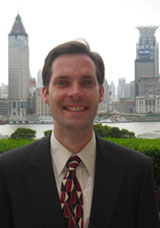 This
American-owned and operated company, run by Rob Bailey, provides all of
your sourcing needs while "streamlining the value chain and bolstering
the source process with ethical values." As they've said, "We
want to do for sourcing what Amazon.com did for online purchasing."
Visit the Convergent Sourcing
Website today.
This
American-owned and operated company, run by Rob Bailey, provides all of
your sourcing needs while "streamlining the value chain and bolstering
the source process with ethical values." As they've said, "We
want to do for sourcing what Amazon.com did for online purchasing."
Visit the Convergent Sourcing
Website today.
![]() Xiamen
Investment Promotion Agency has helped bring in to Xiamen 346 foreign-funded
projects with a total contractual capital worth US$1.08 billion (more
than I make in a whole year!)
Xiamen
Investment Promotion Agency has helped bring in to Xiamen 346 foreign-funded
projects with a total contractual capital worth US$1.08 billion (more
than I make in a whole year!)
Please click here for a list of Xiamen's
30+ Fortune 500 companies, which have
invested in over 65 projects in Xiamen.
![]()
![]()
![]()
![]()
![]() Xiamen
Foreign Investment Guide
Xiamen
Foreign Investment Guide
![]() Xiamen
Investment Promotion Agency
Xiamen
Investment Promotion Agency
![]() Favorite
Fujian Sites
Favorite
Fujian Sites ![]() Fujian
Foto Album
Fujian
Foto Album ![]() Xiamen
Xiamen
![]() Gulangyu
Gulangyu
![]() Fujian
Guides
Fujian
Guides ![]() Quanzhou
Quanzhou
![]() Zhangzhou
Zhangzhou
![]() Longyan
Longyan
![]() Wuyi
Mtn
Wuyi
Mtn ![]() Ningde
Ningde
![]() Putian
Putian
![]() Sanming
Sanming
![]() Zhouning
Zhouning
![]() Taimu
Mtn.
Taimu
Mtn. ![]() Roundhouses
Roundhouses
![]() Bridges
Bridges
![]() Jiangxi
Jiangxi
![]() Guilin
Guilin
![]() Order
Books
Order
Books![]() Readers'
Letters
Readers'
Letters
Last Updated: May 2007
![]() BUSINESS
BUSINESS
![]() Doing
Business
Doing
Business
![]() Jobs!(teach/work)
Jobs!(teach/work)
![]() Hire
Workers
Hire
Workers
![]() Foreign
Companies
Foreign
Companies
![]() CIFIT
(Trade Fair)
CIFIT
(Trade Fair)
![]() MTS(Translation)
MTS(Translation)
DAILY
LINKS
![]() FAQs
Questions?
FAQs
Questions?
![]() Real
Estate
Real
Estate
![]() Shopping
Shopping
![]() Maps
Maps
![]() Bookstores
Bookstores
![]() Trains
Trains
![]() Busses
Busses
![]() Car
Rental
Car
Rental
![]() Hotels
Hotels
![]() News
(CT)
News
(CT)
![]() Medical
& Dental
Medical
& Dental
![]() YMCA
Volunteer!
YMCA
Volunteer! ![]()
![]() XICF
Fellowship
XICF
Fellowship
![]() Churches
Churches
![]()
![]() Expat
Groups
Expat
Groups
![]() Maids
Maids
![]() Phone
#s
Phone
#s
EDUCATION
![]() Xiamen
University
Xiamen
University
![]() XIS(Int'l
School)
XIS(Int'l
School)
![]() Study
Mandarin
Study
Mandarin
![]() CSP(China
Studies)
CSP(China
Studies)
![]() Library
Library
![]() Museums
Museums
![]() History
History
DINING
![]() Restaurants
Restaurants
![]() Asian
Asian
![]() Veggie
Veggie
![]() Junk
Food
Junk
Food
![]() Chinese
Chinese
![]() Italian
Italian
![]() International
International![]()
![]() Visas
4 aliens
Visas
4 aliens
RECREATION
![]() Massage!
Massage!
![]() Beaches
Beaches
![]() Fly
Kites
Fly
Kites
![]() Sports
Sports
![]() Boardwalk
Boardwalk
![]() Parks
Parks
![]() Pets
Pets
![]() Birdwatching
Birdwatching
![]() Kung
Fu
Kung
Fu ![]() Hiking
Hiking
![]() Music
Events
Music
Events
![]() Festival&Culture
Festival&Culture
![]() Humor&
Humor&![]() Fun
Fotos
Fun
Fotos![]()
![]()
Back to Top
![]()
![]()
![]()
![]()
![]()
![]()
![]()
![]()
![]()


![]()

